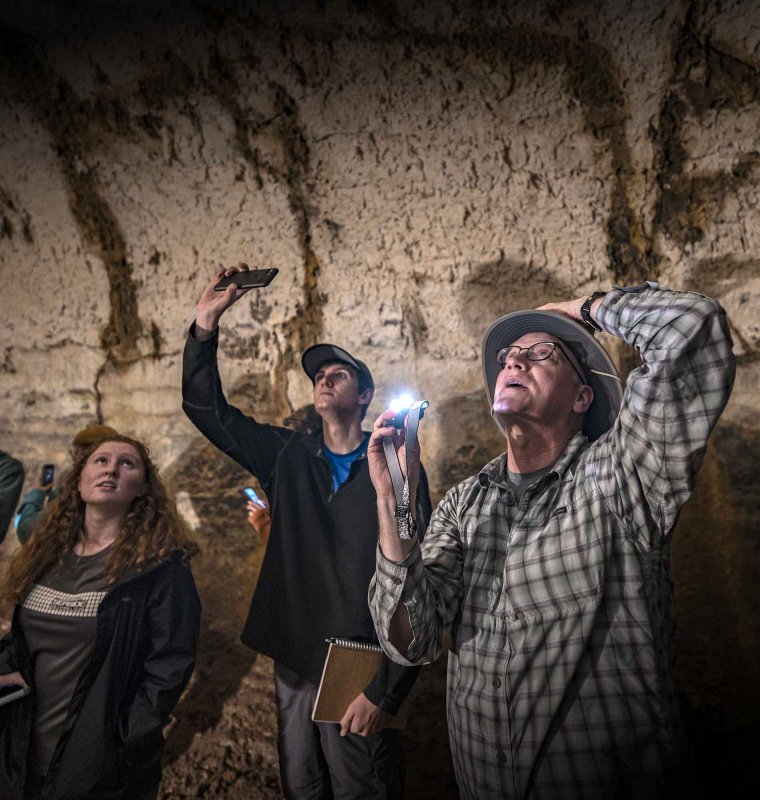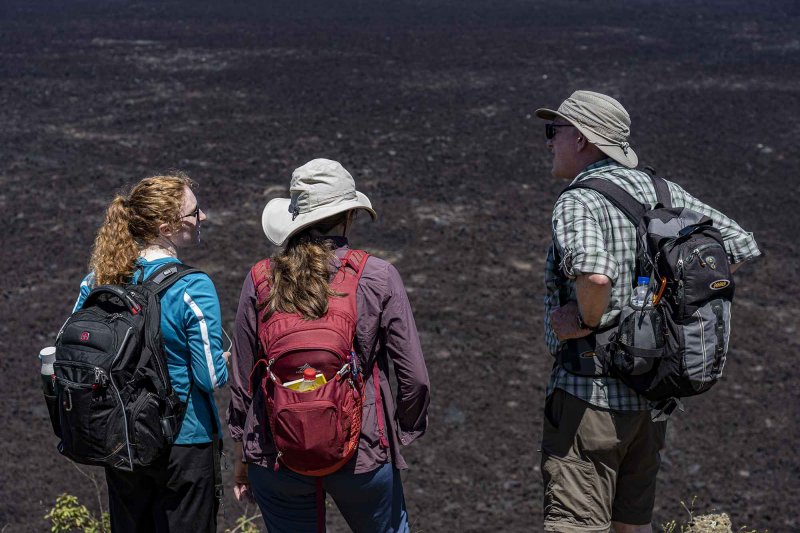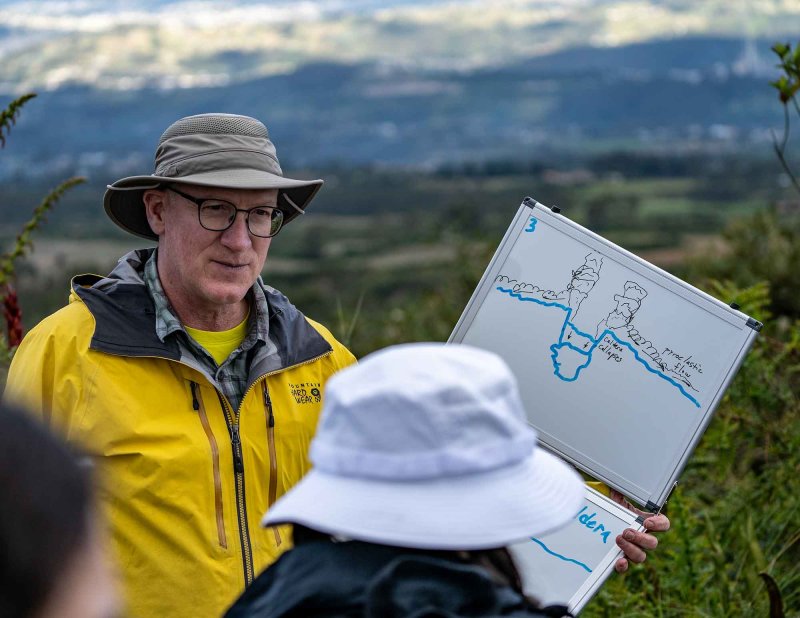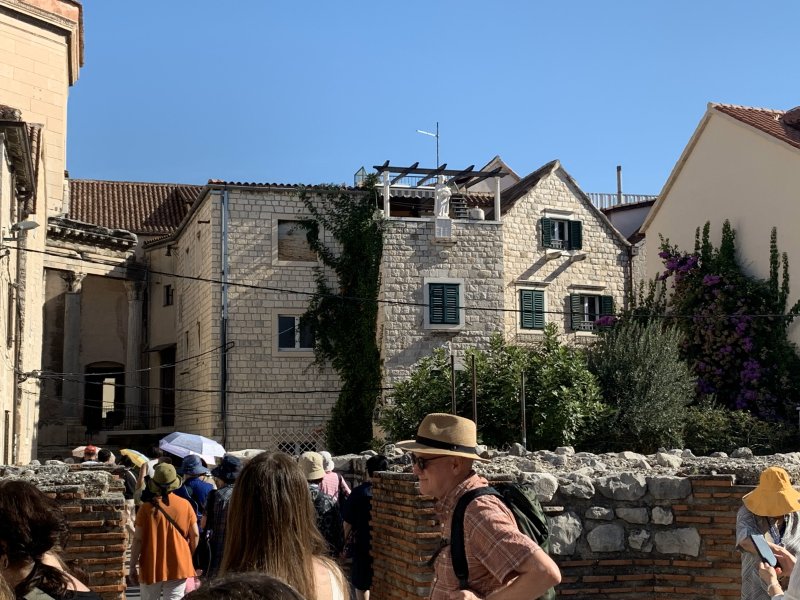Honors College director Scott Linneman to retire in August
WWU Honors College director Scott Linneman will retire in August after almost a quarter-century of service to Western and its students. After coming to Western to teach Geology in 2000 and becoming an affiliated faculty member in Science, Math, and Technology Education (SMATE), Linneman assumed the directorship of the Honors College (then the Honors Program) in 2016.
We sat down to talk to Scott about his legacy at the university and what he will take with him from campus once he retires.
Western Today: When did you come to Western, and where were you teaching before that?
Scott Linneman: I came to Western in 2000 after teaching in Idaho for 10 years, and 2 years in Colorado before that. I've taught at a research university, an expensive private college, a mostly non-traditional-student public college and, then the Goldilocks situation: WWU, where teaching and research are both highly valued.
WT: I've never seen anyone enjoy talking about rocks and geologic processes more than you. Where do you think your passion for geology comes from?
SL: I grew up in central Illinois and learned to swim in lakes that were flooded strip mines. Our Boy Scout troop went fossil hunting annually. But I didn't study any geology until college, where, as a 1st gen college nerd, I was an uninspired pre-med. My first geology class included several field trips where the goal was figuring out puzzling rock outcrops in Minnesota. I loved the puzzle-solving aspect of geology and the sense that so much of Earth's story was still there to be told.
WT: What made you decide to become a teacher instead of a field geologist?
SL: I started teaching in graduate school and then landed my first job at a wonderful liberal arts college as a sabbatical replacement. I loved the feeling of recreating the experience of discovery for my students. Colorado was a perfect place to develop my skills for teaching in the field. When we moved to northern Idaho for my wife's job with the Nez Perce Tribe, I found a professional home in a two-person Geology Department. I got to teach every course in the major and learned a lot on my way to becoming a geologic generalist. I was lucky enough to get NSF funding to bring undergrads on a variety of research projects in Alaska, Oregon, and Idaho. To me, research and teaching were naturally combined, which made WWU such a good match.
WT: You've received numerous awards in your time at Western, including being the first WWU faculty member to be named the State Professor of the Year by the Carnegie Foundation in 2013. Which award are you most proud of?
SL: That's tough... next you're going to ask which of my kids is my favorite? The Carnegie award was humbling. I'm proud to be in the company of great WWU teachers, like Rich Brown (Theatre) who won the award two years after me. The service award from my professional society (NAGT) is also very meaningful. Finally, the WWU Faculty Leadership award really touched me because WWU has so many gifted teachers and caring leaders.
WT: You have overseen the exponential growth of Honors from a program into its own college since you took over in 2016. In what directions do you see the college going after you retire, as far as its future?
SL: Actually, the growth in Honors has been quite linear since 2015. With strong support from the university leadership, we've added 20-25 students to each Fall cohort. We can do this because WWU Honors attracts fantastic applicants (>1000!) from all over the country. This enables 40-50 different faculty to teach an Honors class each year. The future is obviously not mine to determine, but the Honors College continues to serve as a site of curricular innovation. Many of our students engage in service/volunteering activities independently, so maybe the Honors College could help coordinate such opportunities moving forward.
WT: You have been all over the world with Western students, especially through leading Honors Abroad summer programs to places like Croatia and Ecuador, but also taking Geology students afield into the Cascades. What are some of your favorite memories of these trips?
SL: I loved the overnight camping field trips and the trips abroad because you get to know the students beyond their role as academic learners. They are such complicated, interesting humans! When you help them stretch themselves to see a spectacular geologic locale (volcanic craters, landslides, glaciers), their learning has a different, lasting, almost emotional quality. We've definitely had some Type-2-Fun field learning experiences. Just ask my colleague Amy Carbajal about hiking to 16,000 feet on Cotopaxi!
WT: Caring for the academic (and personal) wellbeing of the Western students entrusted to you - from potluck dinners at your house to the aforementioned field trips and education abroad opportunities, and of course just the day-to-day rigor of trying to succeed as a student - has been such a huge part of your life for years. I imagine you have mixed feelings about letting go. Can you talk about that?
SL: C'mon, you trying to make me cry? Yes, I'll miss the class potlucks and grad parties and faculty recruiting dinners. Unfortunately, those wonderful times took a hit during the pandemic, so the transition shouldn't be so bad. Becky and I are looking forward to more socializing with our friends, more dog walks, more good books, more volunteering, more van camping, and more international traveling without worrying about college students' gastro-intestinal well-being. I'll definitely miss the great staff and students at the Honors College who've kept me laughing and thinking the last nine years.
Really, I've visited universities all over the country and I'm quite sure that the proverbial (and literal) grass is greenest in the shadow of Sehome Hill.
Scott Linneman
WT: Any last message to your colleagues and your students, past and present?
SL: Western was a perfect match for me professionally and Bellingham will be our forever-home. I look forward to hearing of all the future successes of my talented colleagues from Geology, SMATE, and Honors. Working at a place like WWU has been an extraordinary privilege. Really, I've visited universities all over the country and I'm quite sure that the proverbial (and literal) grass is greenest in the shadow of Sehome Hill.



